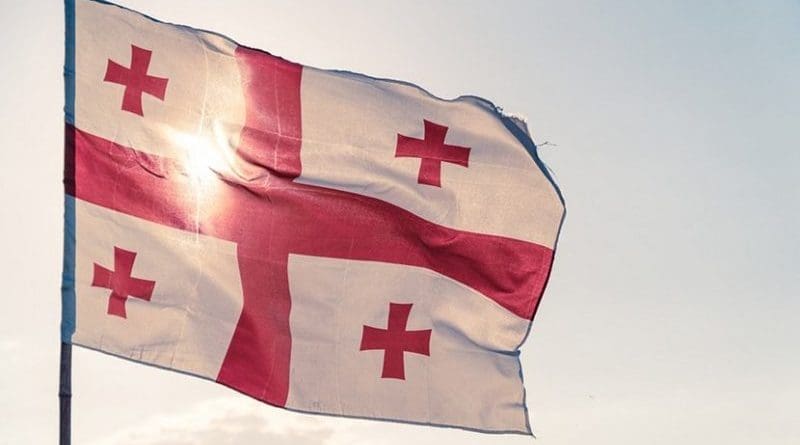Georgia: Trump Indictments Seized On In Tbilisi
By Eurasianet
By Nini Gabritchidze
(Eurasianet) — Election-related charges against the former U.S. president have reverberated in Georgia, where the ruling party has drawn parallels with the opposition’s contestation of the last parliamentary poll.
Government critics fear these parallels may presage moves by the ruling Georgian Dream party to menace opponents and watchdogs against challenging potential violations during critical elections due to be held next year.
Days after Donald Trump was indicted on further charges of attempting to overturn the result of the 2020 U.S. presidential election in the state of Georgia, allies of the government of the country of Georgia are calling for the prosecution of those who protested the results of the Georgian parliamentary poll held that same year.
An August 21 statement by People’s Power, a spinoff of the ruling party, simultaneously defended Trump against the “absurd” charges against him and suggested that his prosecution should serve as a precedent in Tbilisi.
“By American standards, in Georgia, the entire opposition, all heads of opposition TVs, and all chairpersons of rich NGOs need to be arrested,” the group said in a statement on August 21.
The group, notorious for voicing the antiliberal and conspiracy theorist views of the ruling party, has largely been in the shadows since the defeat of the “foreign agent” bills it proposedearly this year.
But the recent charges against Trump for conspiracy to sabotage the 2020 election results breathed a new life into their mission of echoing and escalating the rhetoric of Georgian Dream leaders.
In early August, after Trump was indicted on federal charges for election subversion, Parliament Chairman Shalva Papuashvili recalled the Georgian opposition’s 2020 fraud claims in remarks to Rustavi 2 TV.
“This is not only a parallel, it is a complete déjà vu,” he said.
Most opposition parties contested the Georgian Dream victory back then, alleging vote rigging. Those who won seats initially boycotted the parliament against exhortations by Georgia’s foreign allies. The boycott partly ended in 2021 with an EU-brokered inter-party deal (which Georgian Dream later reneged on).
But Papuashvili and his party colleagues have long alleged that the boycott was a coordinated attempt to subvert the election outcomes, pointing fingers at the opposition as well as local watchdogs and their international donors. To prove their point, they have repeatedly referred to the 2020 controversy around Parallel Vote Tabulation (PVT), a method used to verify official voting outcomes.
The 2020 PVT was conducted by the International Society for Fair Election and Democracy (ISFED), a local NGO supported by Western donor organizations like USAID. Its initial results showed a worse result for the ruling party (45.8 percent of votes) than the official count (48.22 percent), which added fuel to the opposition’s claims of fraud.
But over a month after the election, ISFED acknowledged that a tallying error was the cause of the discrepancy, and changed the ruling party result to 47.7 percent, which was largely in line with the official vote count.
This and the fact that ISFED further admitted that it learned of the error several weeks before it made the announcement fed into the ruling party’s claims that the opposition was trying to subvert the outcome of the election with the help of foreign-backed NGOs. (ISFED attributed the delay to additional audits and checks and ruled out any pressure or deliberate fraud.)
Georgian Dream brought up the controversy to defend the now-defeated “foreign agent” bills that were supposed to target internationally funded NGOs. It also became a part of Georgian Dream’s “second front” conspiracy theory that claimed local government critics were working with the West to drag Georgia into war against Russia amid the latter’s invasion of Ukraine.
News about Trump’s indictment led the ruling party allies to once again ask for a stricter approach against critics.
“Charging Trump in connection with protesting against elections is completely absurd,” People’s Power said, portraying Trump’s contestation of the U.S. election as mild compared to what happened in Georgia. “In the Georgian case, there are all grounds to bring charges against the radicals.”
The group went on to call on the prosecution to bring charges for “a conspiracy against Georgia’s constitutional order and for lying to the Georgian people,” arguing this would have a “preventive effect” for the upcoming 2024 parliamentary election.
The fate of the 2024 elections, where the opposition will again try to challenge Georgian Dream’s decade-plus-long rule, is also what worries government critics.
“By drawing parallels with Trump’s indictment, the Ruling Party of Georgia attacks election monitoring NGOs, as a part of its election rigging strategy, in an attempt to undermine public trust in them and conduct 2024 Parliamentary elections without reliable observers and independent institutions,” opposition leader Giorgi Gakharia posted on X (formerly Twitter) on August 21. (Gakharia was prime minister and aligned with Georgian Dream during the 2020 election. He split with the ruling team in early 2021.)
The concern is that the ruling party may use such parallels to discredit any challenges to the results of the next parliamentary elections. During the 2020 poll, critics and local NGOs saidpractices of vote buying, voter intimidation, and the use of administrative resources, as well as election-day violations, could have influenced the final outcome of the vote.
The parallels come amid ever-straining relations between Tbilisi and Washington that most recently saw Georgian Dream politicians deliver a cold and condescending farewell to outgoing U.S. ambassador Kelly Degnan.
“I am very sorry, Ms. Ambassador, but you did not succeed as ambassador,” ruling party MP Irakli Zarkua said addressing Degnan on August 21. “Goodbye, my darling,” Zarkua concluded after accusing the diplomat of serving opposition interests and attempts at starting a “revolutionary wave” in Georgia.
Nini Gabritchidze is a Tbilisi-based journalist.

